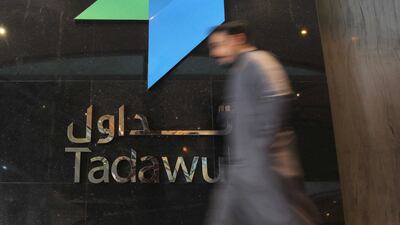Saudi Arabia aims to start listing foreign companies on its stock market as soon as this year as it seeks to become a regional centre for equity issuance, said Mohammed El Kuwaiz, the vice-chairman of the Capital Market Authority.
The plan shows the wide scope of the kingdom’s drive to diversify its economy beyond hydrocarbon exports as oil prices slump. For the last couple of years, the regulator has focused on opening the market to foreign investors, on the grounds that their involvement would make Saudi companies more efficient.
Qualified foreign institutions (QFIs) were allowed to begin investing directly in Saudi stocks in 2015 and qualification requirements were eased last year. The CMA has also been revising rules to help the Saudi market enter international equity indexes, which would bring more foreign money.
Mr El Kuwaiz said late on Wednesday that those measures were now largely complete so the regulator was focusing on the other part of its reform mandate: making Riyadh a centre for capital-raising by companies in the Gulf and perhaps further afield.
The CMA is talking with foreign companies to find one or two candidates for pilot listings in Riyadh and their experience will help the regulator draw up detailed rules for a larger number of listings, he said, without naming the companies.
“Our expectation is that we would probably end up selecting or agreeing with likely willing participants and candidates by the end of this year, with the hope of an eventual listing either by this year or in the first half of next year.”
The stock market in Dubai, which is already part of international indexes, has a head start in attracting foreign listings. Dubai has a large financial infrastructure because many foreign companies base regional operations there.
But Mr El Kuwaiz said that Saudi Arabia had an attraction lacked by other markets in the Gulf, North Africa and other nearby regions: size. With a capitalisation of about US$435 billion, Riyadh dwarfs Dubai at $90bn and is about as large as all other Gulf Arab markets combined.
This means companies listing in Saudi Arabia can obtain better trading liquidity for their shares, higher valuations and a larger investor base when they raise fresh capital, he said.
Saudi Arabia’s economic reform drive already looks likely to cause a big expansion of its stock market as larger numbers of local companies list in coming years.
Riyadh’s privatisation plans, including the sale of a stake in Saudi Aramco, may result in about 100 new listings, HSBC’s chief executive for the Middle East said last week. Close to 180 companies are currently listed on the exchange.
Also, to attract listings by smaller and family-run Saudi companies, the exchange launched a parallel market called Nomu in February with streamlined listing rules and disclosure requirements. Seven firms are listed on Nomu.
Mr El Kuwaiz said the CMA was preparing to increase foreign investors’ access to Nomu by letting them buy stocks without QFI licences. More than 20 local companies have signed agreements with advisers to explore possible listings on Nomu, he said.
Authorities hope the increased listing activity will draw more operations of foreign financial companies to Riyadh, narrowing the gap with Dubai. There are signs this is happening: this week Citigroup obtained a licence to do business in Saudi capital markets.
“As the Citigroup licence illustrated, we have seen an increasing amount of interest and increasing amount of activity by local and foreign firms to get licensed in Saudi Arabia,” Mr El Kuwaiz said, without naming other applicants.
Saudi Arabia also plans to develop its debt market as low oil prices force the government to cover its budget deficit with bond issues and deprive banks of the liquidity needed to meet all corporate demand for funds.
The CMA is working to revise its regulations on offering securities to cater specifically for debt, Mr El Kuwaiz said. “This will probably yield more activity in corporate debt issuance.”
* Reuters
business@thenational.ae
Follow The National's Business section on Twitter

